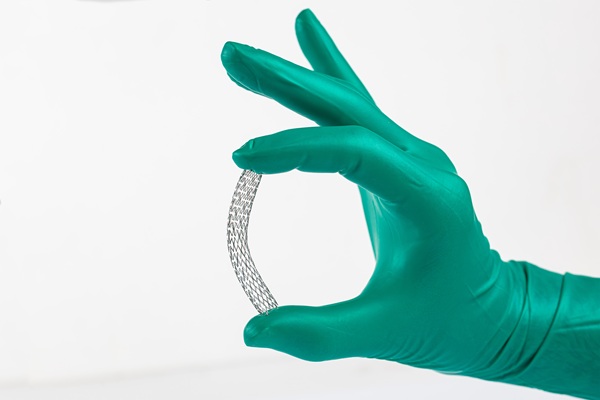Cardiology: How To Manage Cholesterol

Many people are unaware of the large correlation between their cholesterol levels and cardiology. Understanding how to manage cholesterol levels is important to help lower the chances of heart-related issues, including heart disease and heart attack. The following article aims to provide a better understanding of cholesterol, its impact on cardiology, and how to maintain safe cholesterol numbers.
The correlation between managing cholesterol levels and cardiology
Understanding cholesterol
Cholesterol is a waxy, fat-like substance that resides in all cells. It is essential for normal body function. Cholesterol is needed to make vitamin D and hormones such as testosterone, estrogen, and cortisol. Cholesterol also makes bile acids, which help digest food by breaking down fats into smaller pieces so the bloodstream can absorb them through the intestines.
Cholesterol circulates throughout the bloodstream in packages called lipoproteins: low-density (LDL), very low-density (VDL), and high-density (HDL). LDLs, also known as bad cholesterol, carry cholesterol from the liver to other parts of the body. VDLs, another bad cholesterol, are produced when one eats an excess of carbohydrates and sugars that turn into triglycerides, another type of fat molecule. HDLs, also known as good cholesterol, remove excess cholesterol from tissues throughout the body so bile and urine can eliminate it.
Cholesterol level’s impact on the heart
Excess amounts of LDLs, VDLs, or HDLs can cause health problems such as atherosclerosis and the hardening of arteries due to the accumulation (build-up) of fatty deposits, known as plaque, within them. This can result in serious cardiovascular diseases such as coronary artery disease (CAD), peripheral vascular disease (PVD), peripheral arterial disease (PAD), heart attack, or stroke.
Managing cholesterol levels
In general, normal cholesterol levels we like to see in cardiology are as follows:
- Total cholesterol: 170 or below
- Good cholesterol: 50 or above
- Bad cholesterol: 110 or below
One can do several things to manage their cholesterol, including improving their eating habits, exercising, smoking cessation, and limiting alcohol. One should consider consuming less food and beverages with high sugar and saturated fat content when trying to improve their eating habits. These foods are known to increase LDL levels and blood pressure significantly. We encourage patients to introduce more fruits, vegetables, whole grains, and lean (low in fat) meats into their diet.
Those who are overweight have an increased chance of developing high numbers for their total cholesterol, directly increasing their risk for numerous cardiovascular conditions. Therefore, performing moderate-intensity exercises, such as walking, biking, or swimming for at least 30 minutes daily, can help balance their numbers.
Smoking and alcohol cause the LDLs to become “stickier” than they already are, making them cling to the artery walls more quickly than normal. Smoking and alcohol also lower HDL levels, preventing them from filtering the LDLs. Therefore, we encourage patients to cease tobacco products altogether and limit their alcohol intake to no more than half a cup a day. However, detailed recommendations may vary patient-to-patient depending on their medical situation.
Get your numbers under control
Contact our cardiology team if you or a loved one has trouble managing their cholesterol. We can help devise a plan to get your numbers under control and decrease the chances of severely compromising your heart’s integrity.
Request an appointment here: https://boyntonbeach.floridapremiercardio.com or call Florida Premier Cardiology at (561) 229-1411 for an appointment in our Boynton Beach office.
Check out what others are saying about our services on Yelp: Read our Yelp reviews.
Recent Posts
Coronary stent placement is a treatment for coronary artery disease, a buildup of plaque (fat and cholesterol) around the heart's arteries. Along with angioplasty, a stent helps restore blood flow to the heart, relieving symptoms such as chest pain and shortness of breath and helping prevent a heart attack. The following overview of coronary stent…
Heart disease treatment encompasses a range of interventions, from lifestyle changes and medications to surgical interventions. Individuals can manage their condition and improve their quality of life by working with a cardiologist. Successful heart disease treatment starts with the patient having the information they need to make informed decisions about their health.Also known as cardiovascular…
A heart specialist is a doctor specializing in diagnosing and treating cardiovascular conditions. Patients may be referred to one of these doctors for several reasons, from diagnosing a heart health issue to getting cleared for surgery. However, seeing a heart specialist is even more crucial for those either experiencing the signs of heart disease or…
Cardiologists perform angioplasty to open blocked arteries, specifically those caused by coronary disease. This minimally invasive alternative to open heart surgery can restore proper blood flow to the heart and often reverse the fast track to a heart attack. However, learning when one is necessary is crucial for treatment success.Coronary artery disease (CAD) is a…


